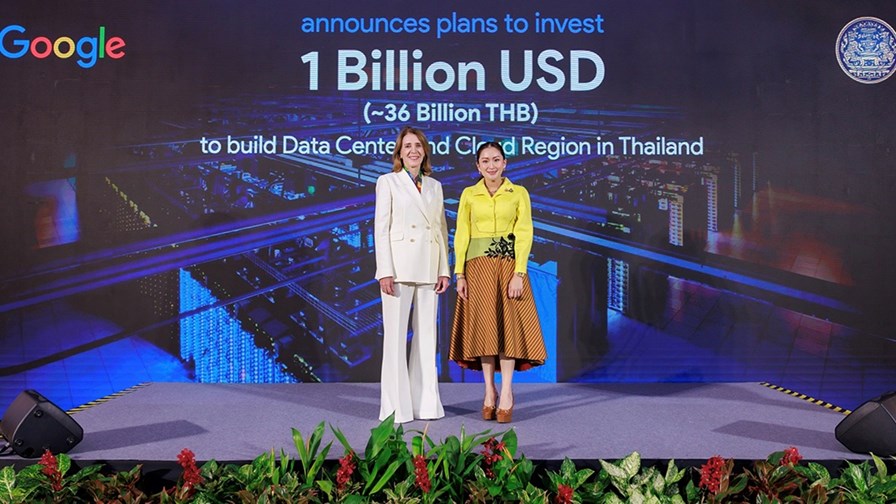
Announcing Google’s $1bn investment in Thailand were Ruth Porat, president and chief investment officer of Alphabet and Google (left); and Paetongtarn Shinawatra, Prime Minister of Thailand.
- Google is to invest $1bn in a cloud region for Thailand while Oracle is promising $6.5bn in AI and cloud compute spending for neighbouring Malaysia
- The moves follow rival AWS’s $6.2bn cloud infrastructure plan
- Both countries’ governments are keen for global AI heavyweights to set up shop within their borders to bring capital spend, employment, prestige and of course the long-term prospect of pervasive GenAI growth and associated benefits
Asia’s datacentre investment rollercoaster continues to pick up speed as 2024 rolls on, with Google announcing plans to spend $1bn in Thailand on datacentre construction, which is planned for Bangkok and Chonburi, and Oracle saying it’s stumping up $6.5bn to open a new cloud region in Malaysia, hot on the heels of AWS’s $6.2bn investment announcement for the same country.
Google’s Thai investment promise is expected, according to a Deloitte study, to add $4bn to Thailand’s gross domestic product (GDP) by 2029 and support 14,000 jobs between 2025 and 2029. Google has been laying the groundwork for its activities with a significant Thai educational investment, claiming it has helped train more than 3.6 million Thai students and educators in AI skills.
For Thailand, the Google announcement has been heralded as a culmination of the government’s long-term engagement with Google, which has been investing in AI and digital skills training, as part of its “Leave no Thai Behind” programme.
Oracle has been making similar cloud and AI investment pledges for Malaysia. It’s planning a cloud ‘region’ with infrastructure primed to deliver software-as-a-service (SaaS) applications and, particularly, enable Malaysian customers and partners to migrate to its Oracle Cloud Infrastructure (OCI). Using OCI, the tech giant claims, users can safely run demanding applications within Malaysia’s ‘sovereign’ cloud digital borders where their data will be subject to Thai laws on privacy and data safety. To that end, their applications can take advantage of Oracle’s Supercluster which, it claims, is the “largest AI supercomputer in the cloud”.
AWS’s move to bestow $6.2bn over 14 years on Malaysia’s cloud infrastructure and prowess itself followed a commitment by the other big global hyperscaler, Microsoft, to invest $2.2bn on a Malaysian cloud and AI hub.
Adding geographical regions to each global hyperscaler’s infrastructure trove is a critical part of the great “global cloud game”. For the hyperscalers, more regions means being in low-latency touch with more potential partners and customers, and is crucial to maximise business growth (for a rundown on regions, availability zones and other measures of cloud virility, see AWS stakes $6.2bn on Malaysia’s cloud prospects.
Given the benefits (and promises to enable AI responsibly to avoid dystopian outcomes), attracting the big AI and cloud spenders is, understandably, being promoted in both Malaysia and Thailand as big political wins for their respective governments, which bask in the promise of increased GDP, improved employment opportunities and more, all of which is expected to arrive in the wake of the new investments.
– Ian Scales, Contributing Editor, TelecomTV
Email Newsletters
Sign up to receive TelecomTV's top news and videos, plus exclusive subscriber-only content direct to your inbox.




